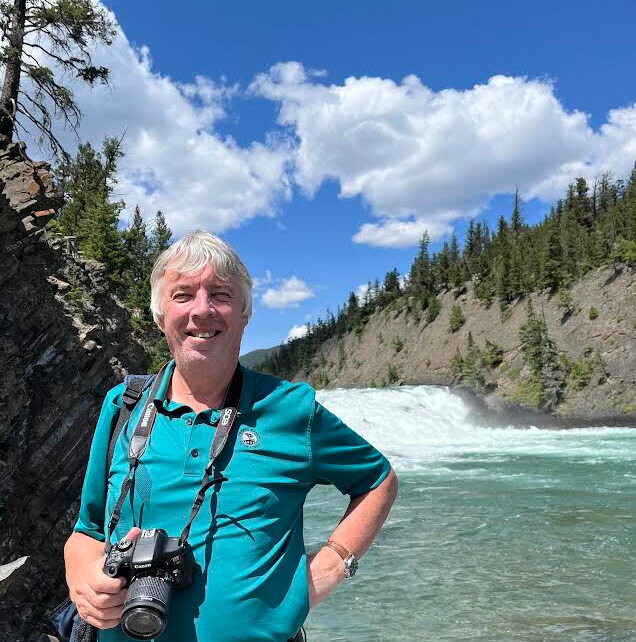
After nearly 40 years in the newspaper business, Pat Payton says he was ready to retire.
Then, in early 2022, Pat was having trouble urinating. Understandably concerned, he visited his local doctor, who ran a PSA test. When considering a “normal” or negligible PSA count is around four and under, Pat’s was a startlingly high 20, prompting a biopsy of his prostate. And in August 2022, Pat was diagnosed with prostate cancer.
“When you hear the C word, it's pretty devastating because you think, ‘Is this the end?’”
Pat assumed he would need to choose between surgery to have his prostate removed, or round after round of chemo and radiation. However, recent advancements in medical technology would provide him with a less invasive, less disruptive treatment option.
Pat was informed of the ARGOS/CLIMBER program, a newly launched clinical trial led by London Health Sciences Centre’s (LHSC) own Dr. Glenn Bauman, and Dr. Andrew Loblaw of Sunnybrook Hospital. They were admitting 50 men into the program and Pat fit the admission criteria.
Typically, patients undergoing radiation treatment for prostate cancer receive 40-45 doses over eight to nine weeks. Short-course radiation therapy can be completed after 28 doses over five to six weeks. The ARGOS program offers the same results with minimal side effects, but requires only five doses of radiation.
Learning that, Pat wanted in and he was accepted into the trial a month later.
ARGOS uses sophisticated imaging tools to provide high-dose radiation for patients with prostate cancer. The five radiation treatments were given every other day for ten days. This included placing three markers in Pat's prostate to ensure precise radiation targeting, allowing Pat to keep his prostate.
The treatment was short, but it wasn’t necessarily easy. Pat experienced hot flashes and a dip in energy levels due to his hormone medication. Nevertheless, he remained strong and optimistic, facing each obstacle with determination and the support of his loving wife.
The ARGOS program worked. After completing the five radiation treatments, Pat’s PSA level dropped from 20 to 0.06, and as of writing this article, his levels have dropped to a scant 0.025. He continues to take hormone treatments to prevent the cancer from returning, but all in all, Pat is back to his regular life and feeling good.
Reflecting on his experience, Pat is truly grateful for the exceptional care he received at LHSC. Every member of the team, from the doctors to the nurses, made him feel cared for and valued.
Today, Pat believes awareness is essential when it comes to prostate cancer and urges others to get tested early and often for better treatment results. By telling his story, he hopes more men will take proactive measures to ensure their own well-being.
To Pat, the LHSC team is not just a group of medical professionals, but a blessing that helped him find hope, healing and a renewed sense of gratitude for life.
